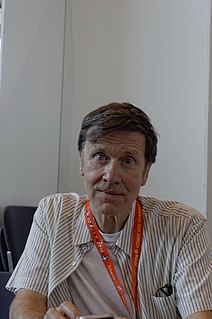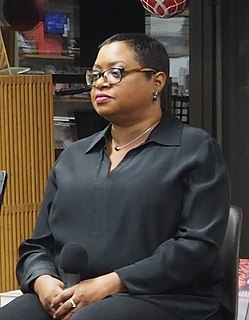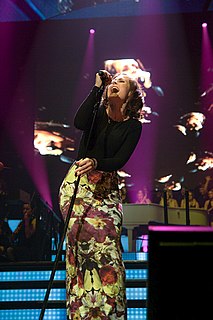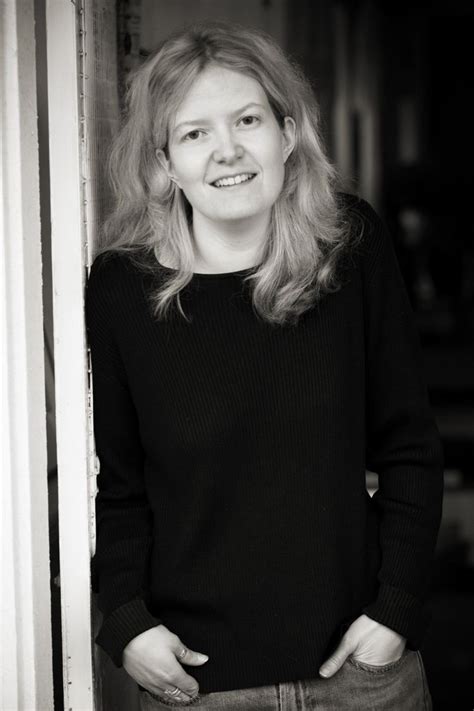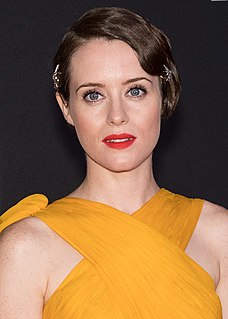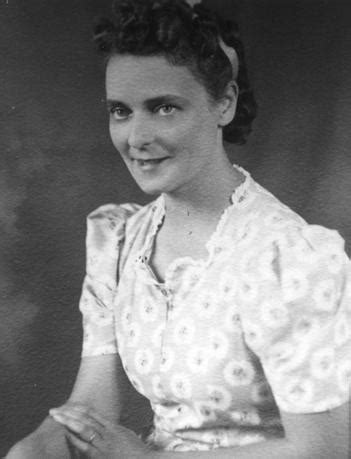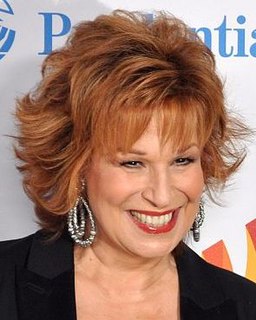A Quote by Peter Milligan
'The Names' is a story about a woman who might feel that she's in a kind of maze. She's unable to find her way forward or out because she can't see the whole picture.
Related Quotes
...she merely wished to find a way out of the maze. She knew that she had become a burden to him: she took things too seriously, turning everything into a tragedy, and failed to grasp the lightness and amusing insignificance of physical love. How she wished she could learn lightness! She yearned for someone to help her out of her anachronistic shell.
I try to see the whole woman,' Eddie said to Hannah. 'Of course I recognize that she's old, but there are photographs - or the equivalent of photographs in one's imagination of anyone's life. A whole life, I mean. I can picture her when she was much younger than I am - because there are always gestures and expressions that are ingrained, ageless. An old woman doesn't see herself as an old woman, and neither do I. I try to see her her whole life in her. There's something so moving about someone's whole life.
When I looked at [Fannie Lou] Hamer and that speech it seemed to me that she had to be the bravest woman ever, to come before that body and to assert her rights, when she knew that she was going lose that battle. But she did it anyway, because she knew she was speaking not just for herself and for that day, but for me, and for all the other young women who were coming behind her. She didn't know our names, but she was working for us. I find that incredibly empowering.
I talked to my mother about it a lot. I asked her what it was like to grow up in New York and Harlem in the 1920s and 1930s, and I asked her about a woman leaving her husband. I asked her about how she would feel about that woman, and my mother grew up in the Church Of God In Christ, and she told me that the woman might be isolated because the other women thought she might go and come after their husbands. That's how they thought then.
Once upon a time there was a girl who wanted to put her fist through a mirror. She would tell everyone it was so that she could see what was on the other side, but really, it was so that she wouldn't have to look at herself. That, and because she thought she might be able to steal a piece of glass when no one was looking, and use it to carve her heart out of her chest.
I think the way I feel when I look at Evan comes from her. In pictures taken the day she married my dad, she was reckless, laughing, spinning around in circles. She looked like her whole world was him. She looked a kind of happy I can't even imagine. I don't want that. I don't want to be like that. I don' want to feel the way she did because I know what happens when you do. You love with your whole heart, with everything, and you wake up one morning and kiss someone good-bye the way you always do except you mean it as good-bye forever.
I hope through The L Word to become an honorary member of the gay tribe. I cherish the thought that some young girl or woman somewhere may one night turn on the television and for the first time ever see her life represented - not as an isolated incident but as a multiplicity. Her overwhelming fear may have been that she might never find her tribe, she might never find love and now she knows that they are both out there waiting for her.
I noted about Cate Blanchett was her very positive lack of concern for how she turns out in Cinderella. She is happy to be a villainess and very pleased to be encouraged as I did with her to reveal this backstory and feel as though this was very human, that this broken heart of hers, if you might regard it that way, would be visible, but she never played for sympathy and I really admired that about her, so she's just there, she just is and uncompromisingly.
She was the first person on either side of her family to go to college, and she held herself to insanely high standards. She worried a lot about whether she was good enough. It was surprising to see how relieved she seemed whenever I told her how amazing she was. I wanted her to feel strong and free. She was beautiful when she was free.
Not that she didn't enjoy the holidays: but she always felt-and it was, perhaps, the measure of her peculiar happiness-a little relieved when they were over. Her normal life pleased her so well that she was half afraid to step out of its frame in case one day she should find herself unable to get back.
